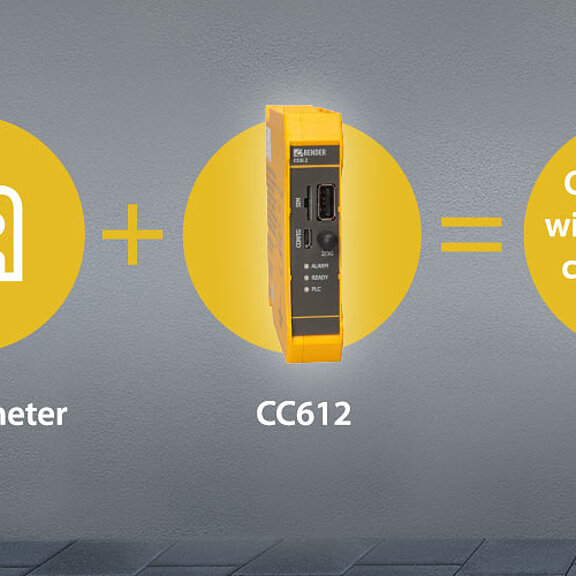

Bender now offers the technical basis for billing in compliance with German calibration law with its CC612 charge controller in combination with the EMH energy meter and the transparency software. With the Bender charge controllers, you can easily set up your own intelligent charging infrastructure.
AC charging stations can often be found at home, in hotels, public parking areas or at the workplace. A great advantage of AC charging is that conventional 230 V/400 V AC power supply can be used and the charging infrastructure can be connected by an electrician.
The choice of the charge controller is a fundamental decision, as it is the heart of every charging station and thus has a significant influence on its function. With its intelligent CC612 charge controller, Bender provides the basis for an AC charging station or wallbox that stands out for innovation, economic efficiency und safety.
The technical basis for billing in compliance with German calibration law is provided by the combination of the CC612 charge controller with the energy meter developed by EMH and the transparency software. The manufacturer-independent transparency software solution allows kWh-accurate billing of electricity for technical operators of charging infrastructure (CPO), back-end operators and end customers. The CPO is not forced to commit to a proprietary solution or a predetermined combination of charging point hardware and back-end. Billing in compliance with German calibration law is not only legally required for public spaces, but also for the charging of company vehicles at the private house connection in case of subsequent billing with the employer.
Free software updates (typ. on a quarterly basis) guarantee that charging systems are up to date and thus take into account dynamic market developments. Since the OCPP1.5 and OCPP1.6 protocols as well as GSM, Ethernet and Wi-Fi interfaces are supported, the controllers can be easily connected to back-end systems and remotely updated and managed.
Intelligent distribution of the energy provided by the grid and ensuring a stable electricity grid are further challenges for operators of charging infrastructures that are becoming increasingly important. A specially developed dynamic load management (eDLM software) integrated in the controller enables load management with up to 250 charging points within a local eDLM system.
During the charging process, vehicle owners can also be provided with specific information from the continuous monitoring of AC and DC fault currents during various charging cycles. This information enables the vehicle owner to detect faults at an early stage.
In addition, the charge controllers provide monitoring of the internal hardware and temperature control via sensors, which regulate the charging power in case of overheating and thus prevent the charging system from failing.
Through continuous development, the charge controllers offer a combination of safety, economic efficiency and innovative technology for future challenges.
Integrated, patented, electronic DC fault current monitoring replaces the need for a more expensive type B RCD. The combination of electronic DC fault monitoring and a type A RCD meets all normative requirements for protection against fault currents. Furthermore, this innovative technology guarantees maximum safety and availability for both the charging system and the vehicle to be charged.
Mario Lehr MBA, Business Unit e-Mobility
Bender GmbH & Co. KG, Grünberg